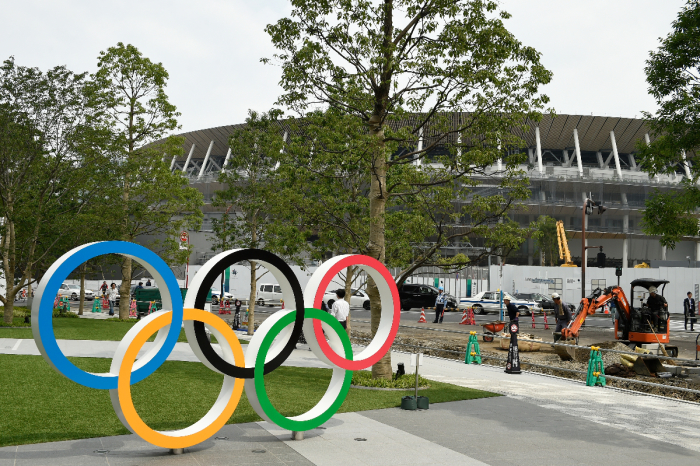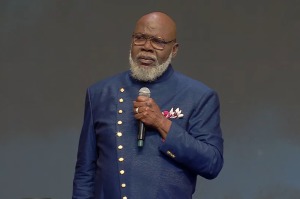43-y-o trans-identified male qualifies to compete in women’s weightlifting at Tokyo Olympics

A 43-year-old trans-identified biological male has qualified to compete in women’s weightlifting later this summer at the Summer Olympics in Tokyo, Japan.
Laurel Hubbard, a biological male from New Zealand, has been competing against women for years. The athlete's qualification for a spot on the nation’s weightlifting team marks the first time a transgender-identifying athlete will compete in Olympic Games, multiple reports say.
"I am grateful and humbled by the kindness and support that has been given to me by so many New Zealanders," Hubbard said in a statement.
New Zealand Olympic Committee CEO Kereyn Smith said that Hubbard has met eligibility criteria, "including those based on [International Olympic Committee] Consensus Statement guidelines for transgender athletes."
"We acknowledge that gender identity in sport is a highly sensitive and complex issue requiring a balance between human rights and fairness on the field of play," Smith stated.
“As the New Zealand Team, we have a strong culture of manaaki and inclusion and respect for all. We are committed to supporting all eligible New Zealand athletes and ensuring their mental and physical wellbeing, along with their high-performance needs, while preparing for and competing at the Olympic Games are met.”
Hubbard, then 41, won gold at the 2019 Pacific Games, beating two women from Samoa, lifting 268 kilograms, which was seven and 13 kilograms more than the silver and bronze medal winners.
Beth Stelzer, the founder of Save Women’s Sports and an active campaigner for preserving sex-segregated sports in state legislatures, said in an email to The Christian Post Monday that she wonders who will be brave enough to assert the basic facts of biology.
“What the Olympics is doing by allowing males to compete in the women’s category is not only shameful but a mockery of the sport," Stelzer, a weightlifter herself, said. "We cannot change our sex. A male cannot become a female by lowering their testosterone. Women are not a hormone level. Identities do not play sports; bodies play sports. The rights of females should not end where the feelings of a few males begin."
Stelzer said it is a "tragedy" that there could be "males on the women's podium at the Olympics."
"We need to stop complying with these lies and start supporting females," she continued. "It is like the tale of the Emperor’s New Clothes. Only the Emperor’s not naked. He is trying to force everyone to say he is a woman."
"Why did it have to get this far for women's rights to be considered?" she asked. "How many more women will have to lose out before society stops complying with lies and starts protecting females? If this doesn't wake people up, I don't know what will.”
In 2019, when Hubbard bested the two Samoan women nearly 20 years younger than her, the Samoan then-Prime Minister Tuila'epa Lupesoliai Neioti Aiono Sa'ilele Malielegaoi appealed to the Pacific Games Council. He questioned the "legitimacy of allowing transgender to lift with women."
"It is not easy for the female athletes to train all year long to compete, and yet we allow these stupid things to happen... The reality is that gold medal belongs to Samoa," he said at the time.
Iuniana Sipaia, ranked eighth worldwide and was the bronze medal winner in that regional competition where Hubbard took gold, is set to compete in Tokyo next month.
"This is my first ever Olympics, and I must say it is not an easy road for me," she said, according to Samoa Observer. "I have always prayed and hoped for this [and] now that it has come true, I am very happy indeed."
Hubbard being allowed to compete in the Olympic Games comes amid a rising tide of bills being considered and passed in state legislatures across the United States and several years after the International Olympic Committee altered its rules about sex-specific sporting events.
In 2015, the IOC permitted trans-identified males to compete in certain competitions provided that they met certain criteria, such as reduced hormone levels. Hubbard reportedly has reduced testosterone to such a level and is thereby allowed to compete in the women’s category.
Surgical alterations to the body are not required by the IOC to compete against the opposite sex.
The Toyko Games, which were supposed to happen last year but were postponed due to the global coronavirus pandemic, are slated to begin on Friday, July 23, and end Aug. 8.
Last month, Belgian weightlifter Anna Vanbellinghen, who competes in the same weight division as Hubbard, called the participation by trans-identified male athletes in women's weightlifting "unfair to the sport and to the athletes."
"I understand that for sports authorities nothing is as simple as following your common sense, and that there are a lot of impracticalities when studying such a rare phenomenon, but for athletes the whole thing feels like a bad joke," she told the Olympic news website Inside th Games.
"Life-changing opportunities are missed for some athletes — medals and Olympic qualifications — and we are powerless."
In 2019, USA Powerlifting received criticism from a Democrat member of Congress after it wouldn't allow a trans-identified male to compete in women's competitions.
The organization, which oversees and organizes powerlifting competitions across the country, maintains that biological males have a competitive advantage against females in strength sports like weightlifting.
USA Powerlifting contends that such advantages include increased body and muscle mass, bone density, bone structure, and connective tissue.
“These advantages are not eliminated by reduction of serum androgens such as testosterone yielding a potential advantage in strength sports such as powerlifting," USA Powerlifting argued in a January 2019 statement.
As the national affiliate of the International Powerlifting Federation, USA Powerlifting follows policies "as defined by the IPF Medical Committee which impact the participation of transgender individuals in events sanctioned by USA Powerlifting.”





























